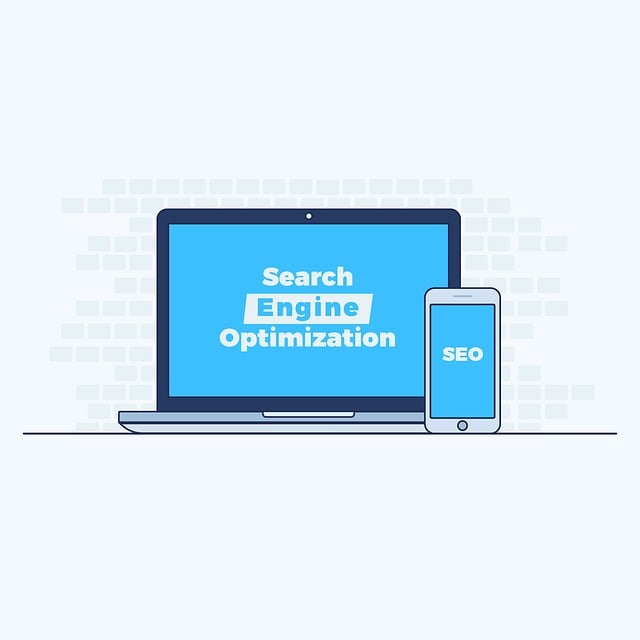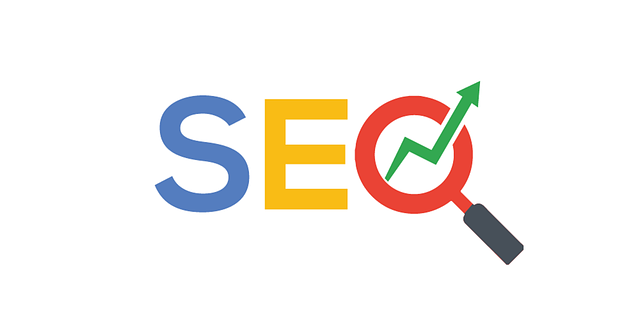On-Page SEO is a critical component of any successful digital marketing strategy, focusing on optimizing individual web pages to boost search engine rankings. This involves keyword research for content creation, strategic placement within headings and meta tags, and user experience enhancements like faster loading times and mobile responsiveness. SEO Services play a key role in this by creating high-quality, relevant content, optimizing titles and descriptions, and ensuring accessibility for search engines.
Off-Page SEO, another vital strategy, focuses on building backlinks from reputable sources to increase website authority. This includes guest blogging, broken link building, and influencer collaborations. Social media engagement is also a powerful tool for expanding online reach and driving organic traffic.
Finally, regular analysis of both on-page and off-page SEO performance using tools like Google Search Console is essential for understanding effectiveness, refining strategies, and adapting to algorithm updates to ultimately drive more traffic and conversions.
In today’s digital landscape, effective SEO services are pivotal for online visibility. This article delves into the dual strategies of on-page and off-page SEO, essential components for boosting website rankings. We’ll explore optimizing content with key techniques, the role of keyword research in crafting compelling title tags and meta descriptions, and enhancing user experience through improved site navigation and speed. Additionally, we’ll discuss building high-quality backlinks, strategic link-building techniques, social media’s impact on brand visibility, and measuring SEO performance for continuous improvement.
Understanding On-Page SEO: Optimizing Your Website Content

On-Page SEO is a crucial component of any comprehensive SEO strategy, focusing on optimizing individual web pages to rank higher in search engine results. This involves understanding and implementing best practices for both technical and content-related aspects of your website. When we talk about SEO Services, On-Page optimization includes everything from refining page titles and meta descriptions to ensuring your website’s structure is user-friendly and search engine crawlers can access all pages easily.
Content optimization is a key area where SEO Services come into play. This means creating high-quality, keyword-rich content that resonates with your target audience while also adhering to search engine guidelines. By incorporating relevant keywords naturally throughout your content, including in headings, subheadings, and image alt tags, you can significantly improve your website’s visibility and attract the right visitors through organic search results.
Key Components of Effective On-Page Optimization Strategies

Effective on-page optimization strategies are the foundation of any successful SEO services. These strategies involve optimizing individual web pages to rank higher and earn more relevant traffic in search engine results. Key components include thorough keyword research, ensuring relevant and unique content, and optimizing essential elements like titles, meta descriptions, and headers. Using keywords strategically throughout your content—in headings, subheadings, and body text—can significantly improve search visibility.
Additionally, on-page optimization includes technical adjustments like improving page load speed, ensuring mobile-friendliness, and creating a user-friendly navigation structure. These optimizations not only enhance the user experience but also send strong signals to search engines about the relevance and quality of your pages. By focusing on these components, businesses can ensure their websites are well-positioned to attract organic traffic and convert visitors into customers.
The Role of Keyword Research in On-Page SEO

Keyword research is a cornerstone of effective On-Page SEO, serving as the foundation upon which successful content strategies are built. It involves meticulous analysis of user search behavior to identify relevant keywords and phrases that potential customers use when seeking products or services similar to yours. By understanding these keywords, businesses can tailor their website content, titles, meta descriptions, and headings to precisely match what users are searching for, thereby improving visibility in search engine results.
In the realm of SEO Services, keyword research enables companies to optimize their on-page elements with strategic precision. It guides the creation of high-quality, relevant content that resonates with target audiences, driving organic traffic and enhancing user experience. Moreover, it aids in competitive analysis by revealing industry trends and competitor strategies, enabling businesses to stay ahead in a dynamic digital landscape.
Mastering Title Tags and Meta Descriptions for Better Rankings

In the realm of SEO services, Title Tags and Meta Descriptions play a pivotal role in enhancing online visibility and driving rankings. These elements are the first touchpoints between search engines and potential visitors, making them crucial for attracting and engaging audiences. A well-crafted Title Tag should succinctly summarize the page’s content while incorporating relevant keywords, typically within 50-60 characters. This strategy not only boosts click-through rates but also sends powerful signals to search algorithms about the page’s purpose.
Meta Descriptions, though not directly influential in rankings, significantly impact click rates and overall user experience. Crafting compelling Meta Descriptions that are both informative and enticing can increase organic traffic by encouraging users to click through from search engine results pages (SERPs). To optimize these components effectively, SEO professionals should focus on creating unique, keyword-rich content tailored to each page’s context, ensuring it aligns with user intent and search trends.
Enhancing User Experience: Importance of Site Navigation and Speed

In the realm of SEO services, enhancing user experience is paramount to achieving high search engine rankings and driving organic traffic. One of the critical aspects is ensuring site navigation that is intuitive and seamless. A well-structured navigation system allows visitors to easily explore different pages, find relevant content, and accomplish their tasks without frustration. This not only improves user satisfaction but also encourages longer session durations, which are favored by search engines.
Moreover, page speed plays a significant role in user experience. Fast-loading websites directly impact how users perceive and interact with your online platform. Search engines prioritize sites that deliver content promptly, as it signifies efficiency and reliability. Optimizing images, minimizing scripts, and leveraging browser caching are some strategies to enhance site speed, thereby boosting user engagement and SEO performance.
Off-Page SEO: Building High-Quality Backlinks

Off-Page SEO focuses on actions taken outside of a website to improve its search rankings. One of the most critical components is building high-quality backlinks, which are incoming links from other websites. These links act as votes of confidence in the eyes of search engines, signaling that the linked content is valuable and trustworthy. Acquiring these backlinks involves strategic efforts such as guest blogging, where contributors write for popular blogs within their industry, and reaching out to influential websites for potential collaboration or link placements.
The quality and relevance of backlinks are paramount. Links from reputable, authoritative sites within a related niche hold significantly more weight than those from low-quality or unrelated sources. This is because search engines view these links as endorsements, indicating that the linked content is worth paying attention to. SEO services that specialize in off-page optimization employ various techniques to secure these valuable backlinks, enhancing their client’s online visibility and ultimately driving organic traffic to their websites.
Strategic Link Building Techniques for SEO Success

Strategic link building is a cornerstone of successful SEO services, involving careful planning and execution to earn high-quality backlinks from reputable sources. These links act as votes of confidence in the eyes of search engines, signaling that your website provides valuable content and deserves higher rankings. Professionals employ various techniques like guest blogging on industry-relevant platforms, where they contribute insightful articles while subtly inserting links back to their site. Another effective approach is broken link building, where SEO specialists identify damaged or missing links on high-authority sites and offer their content as a replacement, ensuring a seamless user experience and enhancing the site’s value.
Beyond this, resource page optimization is a smart strategy. By curating comprehensive lists of resources within your niche and including relevant links to your website, you not only provide added value to readers but also give search engines clear signals about your content’s authority and relevance. Additionally, collaborating with influencers and industry leaders can lead to mutually beneficial partnerships, resulting in high-profile mentions and natural backlinks that contribute significantly to SEO success.
Social Media's Impact on Off-Page SEO and Brand Visibility

In today’s digital era, social media platforms have emerged as powerful tools for enhancing off-page SEO and brand visibility. By leveraging popular channels like Facebook, Instagram, Twitter, and LinkedIn, businesses can increase their online reach significantly. These platforms enable companies to connect directly with their target audience, fostering a sense of community and engagement. This interaction not only boosts brand awareness but also encourages user-generated content, which is highly valuable for SEO services. When customers share experiences, products, or services on social media, it creates a web of backlinks naturally, indicating to search engines that the brand is authoritative and trustworthy.
Furthermore, social media platforms provide an opportunity for brands to showcase their unique value propositions and engage in online conversations. Regular posting, sharing industry insights, and participating in trends can drive organic traffic back to a website, thereby influencing off-page SEO rankings. With millions of active users worldwide, effective social media strategies have the potential to revolutionize a brand’s online presence and visibility, making it an integral part of any comprehensive SEO services approach.
Measuring and Analyzing On-Page & Off-Page SEO Performance

Measuring and analyzing the performance of on-page and off-page SEO services is a crucial step in understanding their effectiveness and impact on search engine rankings. On-page SEO involves optimizing individual web pages to rank higher and earn more relevant traffic in search engine results pages (SERPs). This includes evaluating factors like keyword optimization, meta tags, content quality, and page loading speed. By utilizing tools such as Google Search Console and analytics platforms, marketers can track key metrics, identify areas of improvement, and make data-driven adjustments to enhance on-page SEO performance.
Off-page SEO, on the other hand, focuses on building authority and trust for a website through external signals, primarily backlinks from other websites. Analyzing off-page SEO involves examining the quality and quantity of these backlinks, as well as assessing social media mentions and brand mentions. Advanced analytics tools can help in detecting toxic links, monitoring domain authority, and understanding the overall impact of off-page strategies on search engine rankings. Regular performance analysis enables businesses to refine their SEO services, stay ahead of algorithm updates, and ultimately drive better organic traffic and higher conversions.
